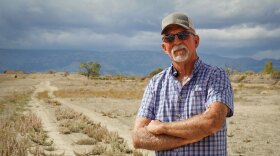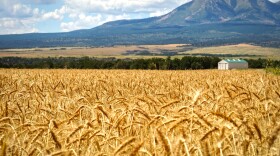-
With fewer young producers entering the industry, Utah’s agricultural workforce is aging on the farm.
-
Honey bees are considered domesticated livestock by the U.S. Department of Agriculture. Pollinators native to Utah, on the other hand, aren’t typically cared for by people.
-
“We're just trying to be proactive,” said one Carbon County farmer. “Hopefully, we can make some kind of difference in the big picture.”
-
Cuando el presidente Donald Trump anunció que reduciría los precios de la carne de res cuadruplicando las importaciones desde Argentina, el mercado ganadero se desplomó de inmediato. Pero los productores de Utah dicen que su idea no afectará los precios a largo plazo debido a un déficit ya grande en la cadena de suministro de Estados Unidos.
-
When President Donald Trump announced he would lower beef prices by quadrupling imports from Argentina, the cattle market spiraled in the moment. But Utah producers say his idea won’t impact prices long-term due to an already large hole in the U.S. supply chain.
-
Several environmental groups want the federal government to curb water waste in the Lower Basin states of California, Arizona and Nevada.
-
The U.S. Department of Agriculture plans to move thousands of employees out of Washington, D.C., aiming to save money and bring them closer to farmers and ranchers. Around 2,600 workers will relocate to five hubs from North Carolina to Utah.
-
A local pest control company owner says he’s never been busier, especially since Utah had a lackluster winter where temperatures started to climb early.
-
Foodscaping Utah, an Ogden-based nonprofit, recruits volunteers to help with the work and asks participants to donate some of what they grow to the community in return.
-
The basin has lost 27.8 million acre-feet of groundwater since 2003. That's roughly the volume of Lake Mead, the nation's largest reservoir.
-
Farmers are dying by suicide at the third-highest rate by vocation in Utah. But after a federal program offering mental health support ran out of money, the state did not continue it.
-
Utah’s drought conditions could deteriorate even more as temperatures start to climb. NOAA’s latest seasonal outlook expects above-average heat through July.
Play Live Radio
Next Up:
0:00
0:00
Available On Air Stations











